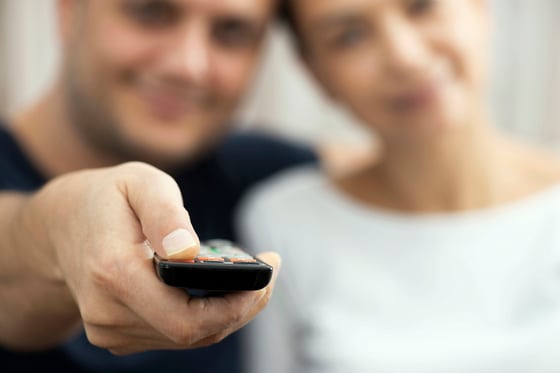You are now competing with pixels for the attention of nearly everyone you know. And you are probably losing.
Technology addiction, screen time, the black hole of the internet, Reddit, and the endless scroll of Instagram and TikTok—not to mention those notifications every time an email slides in! The widespread influence of tech is part of our daily lives. There are more ways for screens to suck people in than there are people to be enticed.
Estimated reading time: 4 minutes

The other day, even my dog got so caught up in a Game of Thrones episode that she wouldn’t come when I called (there were wolves on the screen).
How Technology Affects Relationships
One dramatic way that technology can profoundly affect relationships is technology addiction, a compulsion that rules one's life and has negative consequences. It is often destructive to our relationships and health. Technology is so prevalent in our lives, like water to fish, we hardly notice our preoccupation on screens is devouring hours of time—and eating away at love. Our behavior moves from value-based and rational to automatic, even obsessive and irrational.
Managing the Overwhelming Onslaught of Tech
So how do you manage the role of technology in your relationships, families, and home?
Some people don’t manage it; they eliminate it.Hardly an article has been written about parents of Silicon Valley without mentioning that they oppose technology for their children—at home, school, and sometimes in every context. Ironic? Worrisome? Just this month Business Insider published a piece about how, in the hub of American technological development and startups, parents believe tech can hurt children’s psychological and social development because it is made to be addicting. One father takes his children on annual unplugging retreats to a Buddhist temple.
Read the Business Insider article: Silicon Valley parents are raising their kids tech-free — and it should be a red flag. Others don't even realize they have a problem.
While most American homes probably don’t have such insider knowledge or such an absolute ban on tech, it is an issue almost everywhere.
Looking at a screen right now, you know that not all screen time is bad. But what is always the right choice is mindfulness.
Related reading: "Teens and Screens: Does Your Child Have Screen Addiction?"
Priorities matter. At work emails and spreadsheets might take precedence, or coding, or emailing. At school, kids are using tablets to learn. In free time connectivity apps like Facebook’s event calendar, travel apps like Yelp and TripAdvisor, and social apps like Instagram and Pinterest can be inspiring, fun, and connect you to your community. But there is a time and a place.
On a date with your partner where you’re looking forward to connection; at a family dinner; when you need advice; while coordinating plans together—these are just some examples of when the most infuriating thing is talking to someone who’s staring at a screen.Handling technology at home is a two-way street, best navigated with self-awareness, emotional intelligence, and mindfulness. Open communication becomes the key here!

Raise Your Self-Awareness to Increase Conscious Choices
On one side: the person looking at a screen. It’s undoubtedly interesting, offering you information and interaction made to compel you to read on, click, or engage. Here mindfulness matters most. Being aware of your situation, surroundings, and the needs of those you love—it’s a good time to ask yourself whether the screen is more important than true FaceTime.
If you do need to be “plugged in”—for example, when you’re looking up directions to your date spot or just received an urgent message—communication is vital. Take one minute to explain why you need to be on your phone, computer, TV, or any gadget, and your loved one is more likely to understand. Without communication, it looks like you're choosing a screen over their words and company.
On the other side: the person trying to connect humanly, without distractions. Anger, annoyance, frustration—these emotions pop up quickly and powerfully, and they often spur our human brains to react with a fight-or-flight response that makes us too quick to lash out. This is the time for a moment of emotional intelligence check-in. Asking “why am I upset she/he is paying more attention to technology than me?” is a good first step.Author G.K. Chesterton said this about being distracted: "I am not absentminded. It is the presence of mind that makes me unaware of everything else."
A strong argument could be made against Chesterton, who spontaneously became a writer after college because he received an unexpected letter from a magazine asking him to contribute. He went on to write over 100 books, contributed to 100 more, and wrote 4000 newspaper essays, including 30 years worth of weekly columns for the Illustrated London News...Talk about getting distracted from your initial purpose. And Chesterton never even had a smartphone (he >was born in 1847)—perhaps that’s why he was so prolific.
The point is that whoever is “ignoring” us to look at a screen is probably not intentionally ignoring us, but they are not intentionally focusing on us either.
Related reading: "Keys to Healthy and Happy Relationships."

For more tips on effective communication: The Stop, Drop, and Roll of Successful Communication.
For the Love of Technology
My fiance and I love our technology—we have wifi-connected light bulbs, Apple watches, the newest smartphone, a Nest thermostat, multiple Amazon Echos, and home cameras we can check from an App on our phones. But we have also committed to loving each other more.
When we go out, we don’t put our phones on the tabletop. If we do, we put them face down. When there is something to look up, show each other, read or text, we make a point to explain why we’re grabbing our phone.
At home, we make a point of clearly saying “can we pause to talk now?” if the TV is on. Sometimes the answer is no, and then the ideal is that clear communication navigates us to a later time to talk. We are not perfect; we are definitely plugged in; and we, like most families around the world, are constantly navigating this brave new world of tech distractions.

How to Have a Healthy Relationship? ... with Technology
When you zoom out, practice mindfulness and open communication, technology can go back to its place—as a tool for meaningful connections, rather than a brick wall when you’re calling the kids to dinner.
For coaching and customized support, contact Heartmanity at support@heartmanity.com or check out our emotional intelligence online courses.









